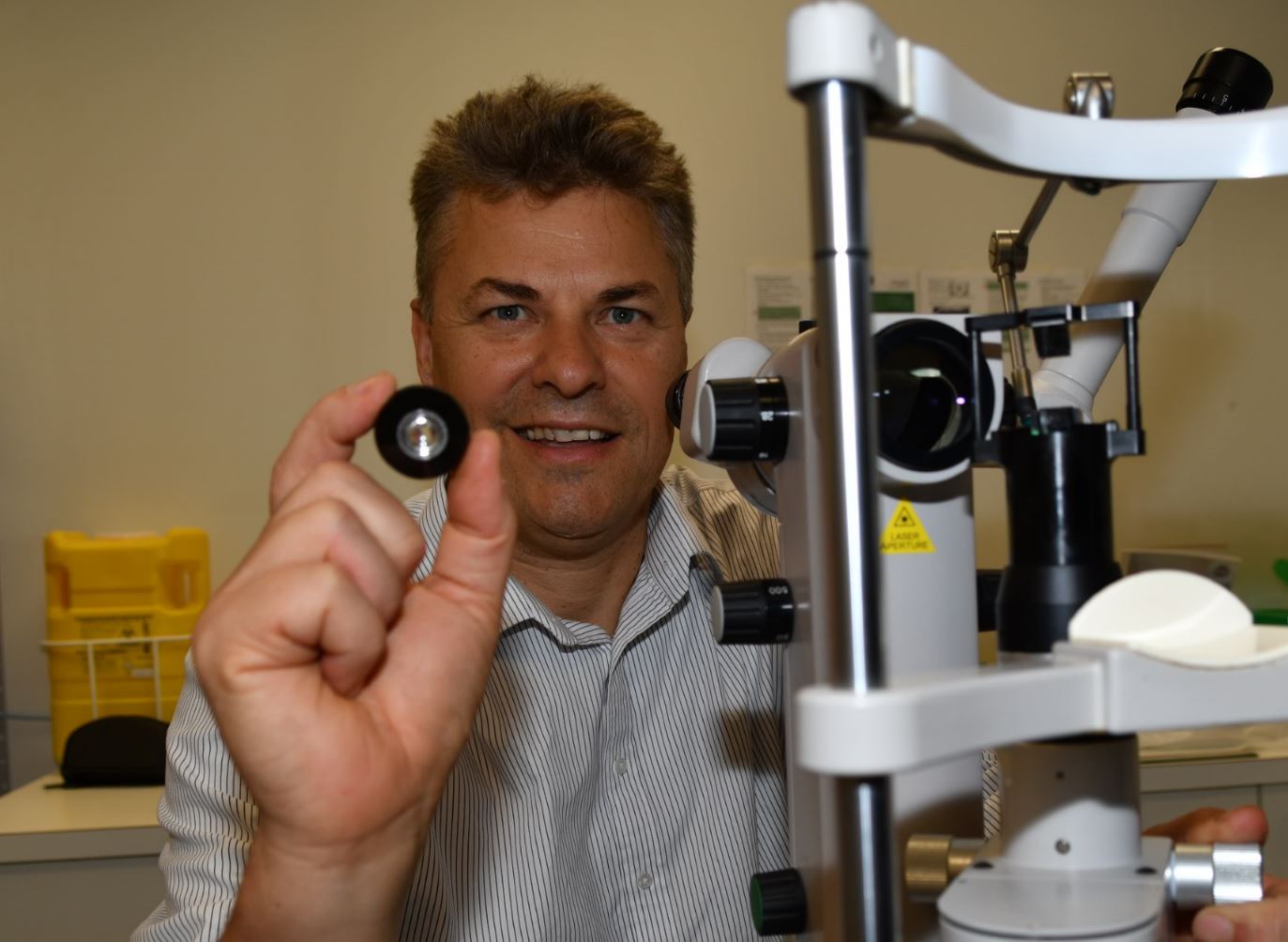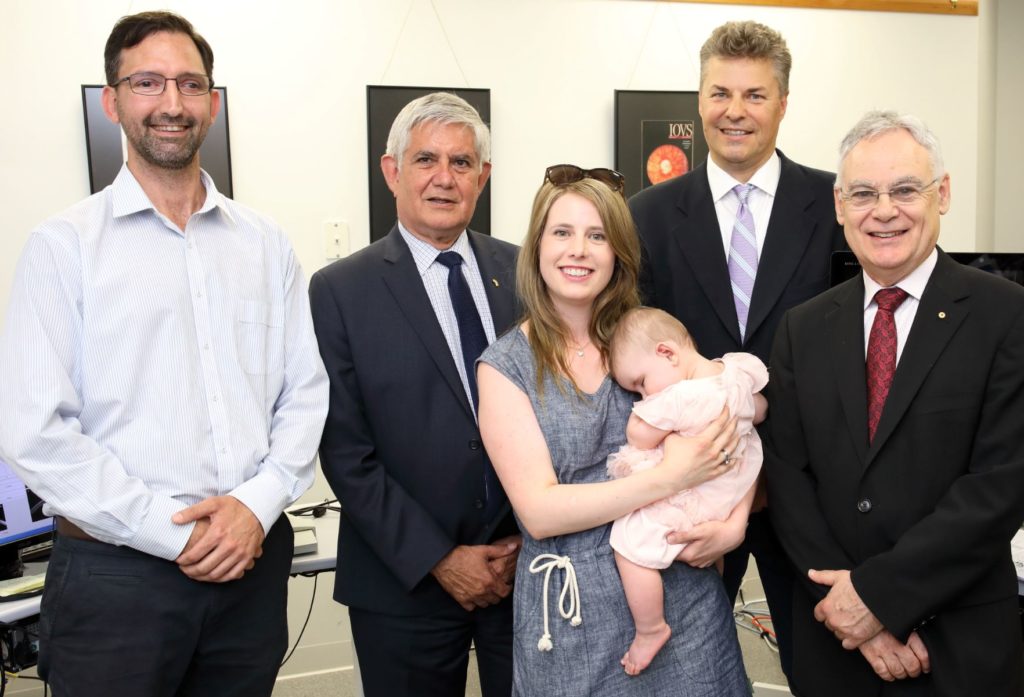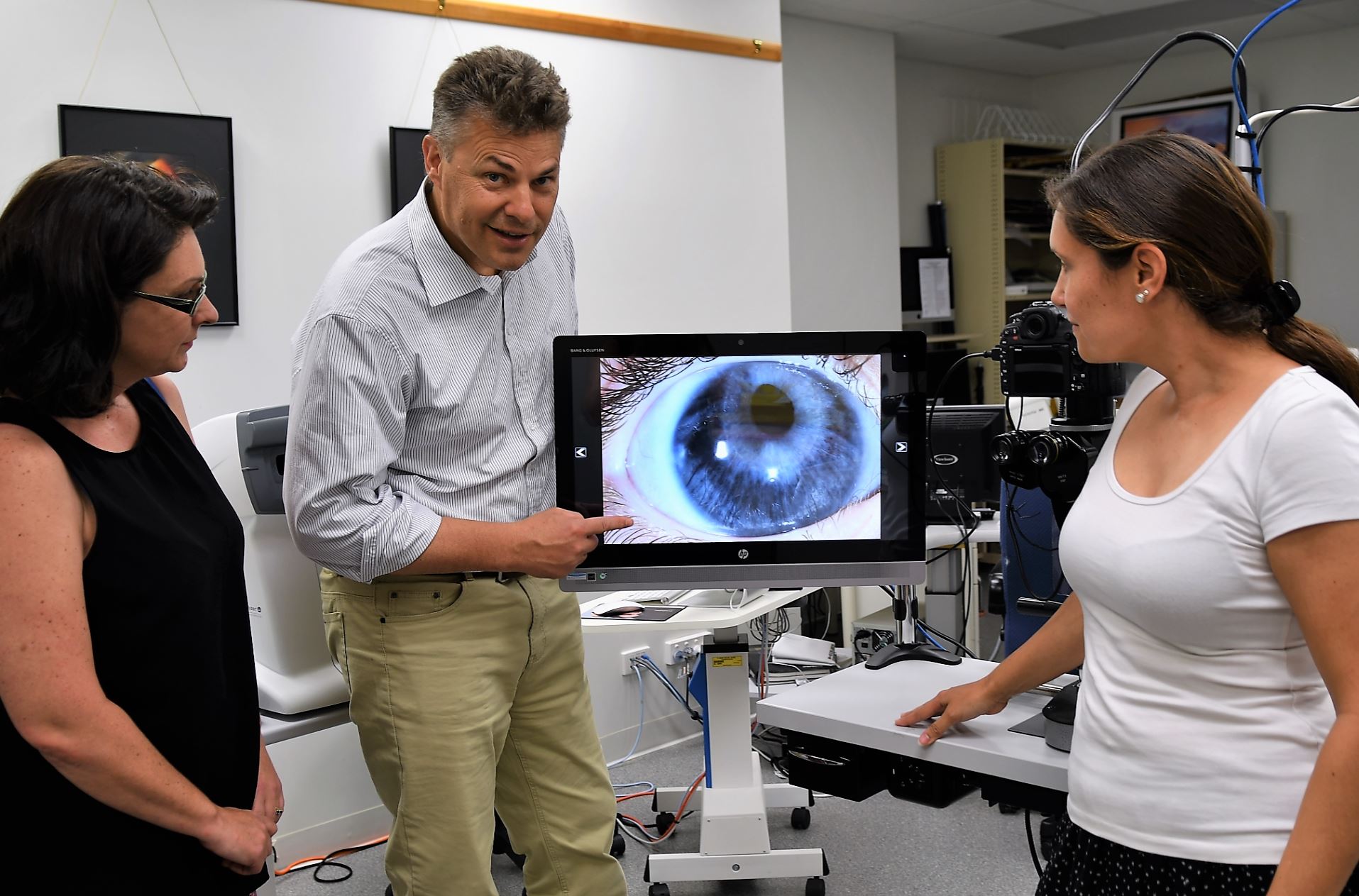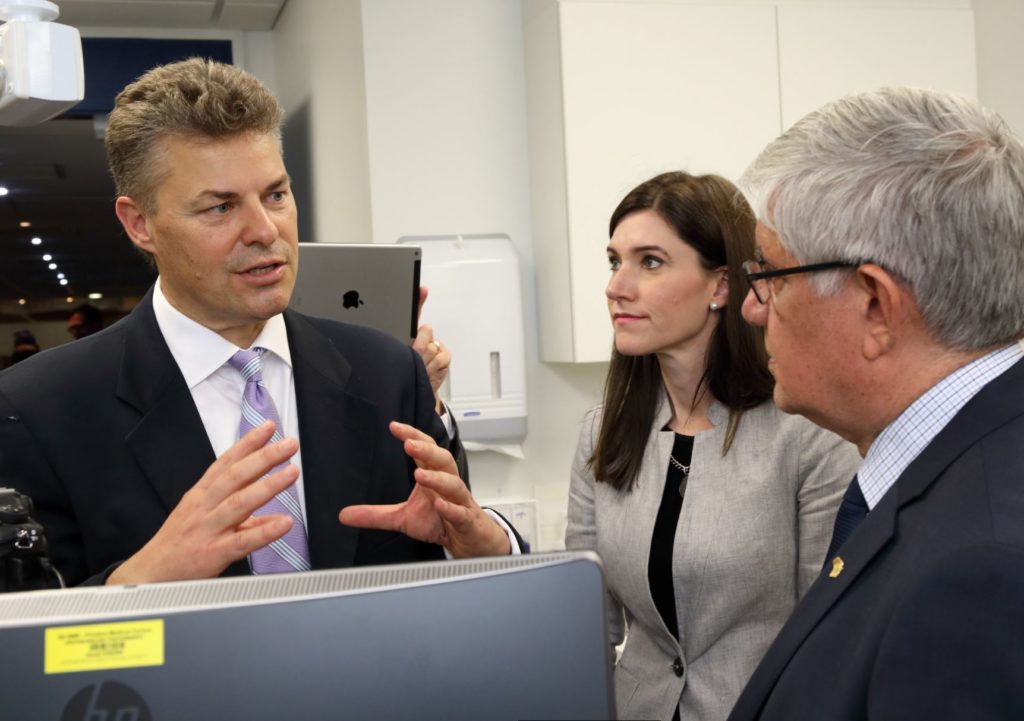
The eyesight of millions may be saved thanks to Flinders University’s visionary genetic research which has been awarded more than $9 million in federal funding.
A $9.46 million National Health and Medical Research Council (NHMRC) program grant aims to convert the genetic discoveries of primary open angle glaucoma into new clinical practices to reduce the disease expected to affect 80 million people worldwide by 2020.
Led by Flinders Professor of Ophthalmology Jamie Craig, who has a long track record in investigating this highly heritable disease, the five-year program will use CRISPR/Cas editing and next-generation gene sequencing approaches and run the world’s only DNA bank of patients to understand advanced glaucoma genetics.
“This work will directly and indirectly lead to a change in clinical practice, which will result in improved outcomes for patients with or at risk of developing this blinding condition,” Professor Craig says.
“We are currently monitoring approximately 1,500 patients to investigate how genes and eye tests can be used to predict the risk of developing severe glaucoma in people with early signs of the disease.
“This will ensure that high risk individuals can access treatment early, while those at low risk can be spared unnecessary treatment and seen less often by vision experts.”
The Minister for Aged Care and Minister for Indigenous Health, Ken Wyatt, visited the Flinders Ophthalmology Eye and Vision Clinic today to announce the NHMRC program grant.

“The potential to personalise treatment through genetics is exciting,” Minister Wyatt said.
“It’s long been known that a family history of glaucoma means increased risk but there are no symptoms or warning signs in the early stages.
“Testing is vital and, although there is no cure, with treatment glaucoma can be controlled and further loss of sight either prevented or slowed.”
Glaucoma is a group of eye diseases in which the optic nerve at the back of the eye is slowly destroyed. In most people this damage is due to an increased pressure inside the eye as a result of a build-up of fluid.
Sight loss is usually gradual and a considerable amount of peripheral vision may be gone before people are aware of any problem.
Member for Boothby, Nicolle Flint MP, said the research grant would support the work of Flinders University Professor Jamie Craig.
“Eye and vision science is one of Flinders University’s key strengths in both teaching and research,” Ms Flint said.

“Professor Craig will examine new ways to diagnose and treat glaucoma, promising better outcomes for patients. Improved care will also result from better targeting of treatments and monitoring of low risk cases.
“Health and medical research is a powerful investment and one that delivers immense benefits to patients and to the economy.”
The annual economic cost of glaucoma in Australia has been estimated at more than $144 million.
Funding for the grant has been provided through the National Health and Medical Research Council (NHMRC) and continues the Turnbull Government’s commitment to Australia’s world-leading medical researchers.
Since 2007, the NHMRC has provided $29.8 million to glaucoma research.
Flinders University Vice-Chancellor Professor Colin Stirling says the major new NHMRC Program Grant in ophthalmology highlights the level of expertise within Flinders University’s leading College of Medicine and Public Health.

“Eye and vision science is one of our key strengths in both teaching and research at Flinders University,” Professor Stirling says.
“It’s long been known that a family history of glaucoma means increased risk. Our work based on knowledge of the genes that lead to glaucoma blindness will have important real-world impacts in reducing worldwide suffering caused by this common condition.
“Flinders has a long tradition of research and clinical practice of the highest standing, and this five-year grant will support our work to make a positive difference by preventing blindness in patients across Australia and overseas” Professor Stirling says.
Flinders Deputy Vice-Chancellor (Research), Professor Robert Saint, says funding from the Australian Government NHMRC program is a boon to better future health outcomes.
“NHMRC funding enables our medical research leaders, who are experts in their respective fields, to make strong inroads into some of the largest disease challenges of the 21st century,” Professor Saint says.
This important project being led by Professor Craig is being done in collaboration with fellow Chief Investigators Professor David Mackey from the University of Western Australia, Associate Professor Stewart Macgregor from the Council of the Queensland Institite of Medical Research and Associate Professor Alex Hewitt from the University of Tasmania.
The Flinders Centre for Ophthalmology, Eye and Vision Research aims to improve outcomes for patients with blinding eye conditions affecting our community.
In addition to the research on glaucoma, the centre runs database registries tracking outcomes and causes of vision loss from diabetes and corneal disease.

